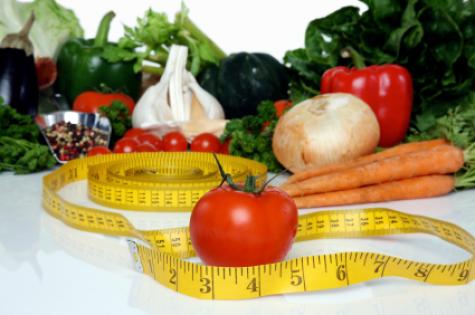It’s that time of year again . . . with Christmas pudding and New Year nibbles now a distant memory many of us turn our thoughts to eating better and living healthier once January hits.
In fact, a recent Newspoll survey of young Australian women, commissioned by the Dietitians Association of Australia (DAA), found 68% of those surveyed had resolved to eat healthier in 2013 and 42% were hoping to lose weight.
To help Australians make positive and sustainable changes to their eating habits, when motivation is often at its highest at the start of a New Year, DAA has been hosting Australia’s Healthy Weight Week each January since 2008 because it’s an
ideal time to kick-start healthy eating habits.
“We want to raise awareness of weight issues in younger women, and help them get to a healthy weight sensibly – instead of trying to lose 20 or 30 kilos when they reach 50, which is far more difficult,” says Professor Clare Collins, a spokesperson for DAA.
Here are DAA’s top nutrition tips from DAA for a healthy 2013:
- Start the day with breakfast. Breakfast eaters are more likely to be a healthy weight and less likely to re-gain lost weight. Include a source of protein (such as an egg or baked beans) and a low glycaemic index (GI) choice (like wholegrain toast or low‐fat yoghurt). Protein-rich foods and lower GI carbohydrates provide important nutrients and also help keep you fuller for longer.
- Choose low kilojoule, high nutrient foods. Wholegrain breads and cereals, fruit and vegetables, lean meat, fish, eggs, legumes, nuts, and lower fat dairy foods fit the bill.
- Rediscover home cooking. By learning to cook at home using healthy ingredients you’ll boost your nutrient intake. And studies have shown that cooking stir-fries, roasts and casseroles including protein foods like beef and lamb means you’ll put more vegetables onto the plate as well. You only need 15 minutes to make a tasty, healthy meal.
- Eat fruit and vegetables. Build up to the recommended five serves of vegetables (around three cups) and two serves of fruit every day. Fill half your dinner plate with vegetables (which is easy when you cook at home) and eat fruit as a snack.
- Be portion aware. Over the past 30 years, the amount of food on our plates has increased – as have our waistlines. Shrinking portion sizes at every meal is a sure-fire way to lower energy (kilojoule) intake.
- Enjoy treats – in moderation. Many young women report sugary treats and take-aways as a weakness, making it more difficult to eat well. You don’t have to cut out any food, as long as you moderate your intake. Everyone’s different – so cutting back to a square or two of chocolate a day or a take-away once a week may be a step in the right direction for you.
- Choose healthier drinks. Water is the best choice – so have a glass, bottle or jug of water close by at all times. Too much alcohol can lead to excess kilojoules and poorer food choices, both of which contribute to weight gain. If drinking, try a wine spritzer (wine diluted with plain mineral water) or a light beer, or ask for a smaller glass when drinking.
- Write down everything you eat and drink. This will help you become more aware of what you're eating and drinking, and where any problem areas are. Research suggests this is one of the best ways to change your eating habits and lose weight.
- Be a mindful eater. Pay attention to hunger levels and how much you’re eating. Turn the television off and instead concentrate on the taste of food, as well as how full you feel. This is an easy way to trim kilojoules from your day.
- Recruit a support team. Everyone needs support to maintain healthy habits. Find at least one person (friend, family member, work colleague, or health professional – such as an Accredited Practising Dietitian) who will support and cheer you on. People who have, such as 25 year old Katie Morphew, say it’s unlike anything else they’ve tried. “It actually works. Being accountable to someone, tapping into their knowledge and feeling supported is so rewarding. I am a whole lot happier and more confident now.” (Katie has lost 9kg over eight months).
- Be realistic about weight loss. “Like Katie, aim for a drop of around half to one kilo a week, be as active as you can every day and take on eating habits you can live with for a lifetime,” says Professor Collins.
For information on Australia’s Healthy Weight Week, including nutrition fact sheets, a seven-day menu planner and a downloadable cookbook (developed by celebrity chef Luke Mangan), visit www.healthyweightweek.com.au


















__small.png)










